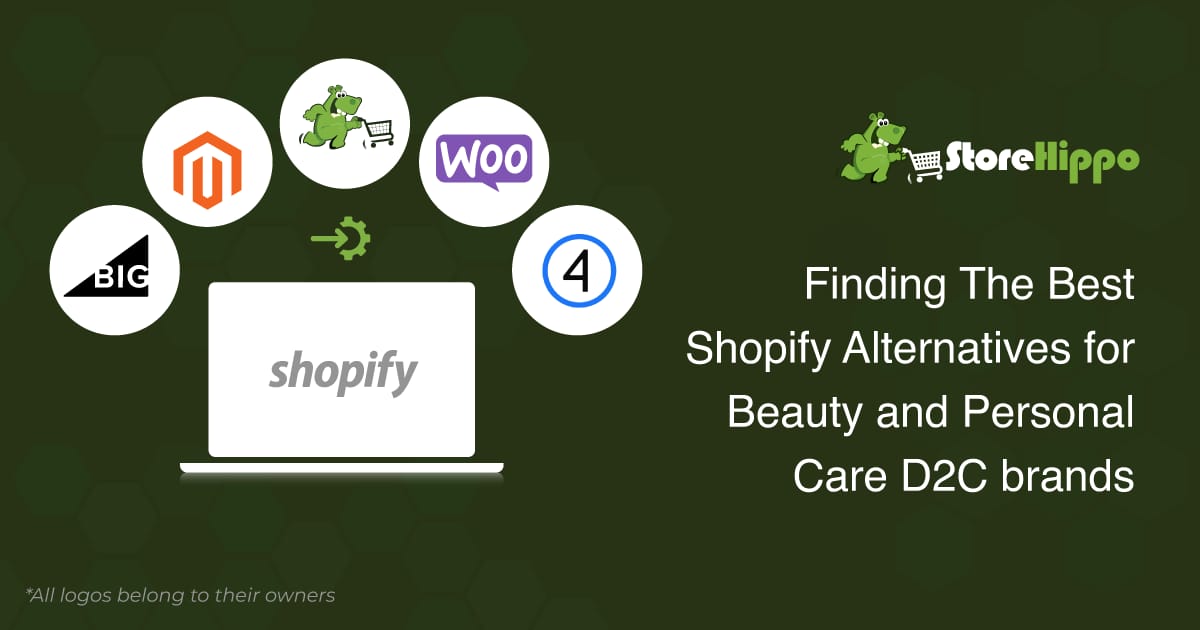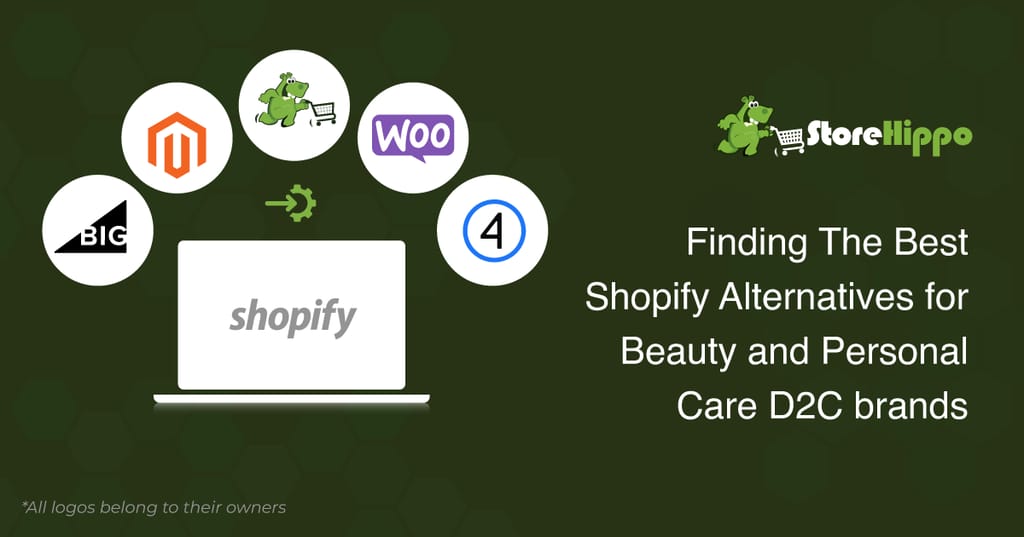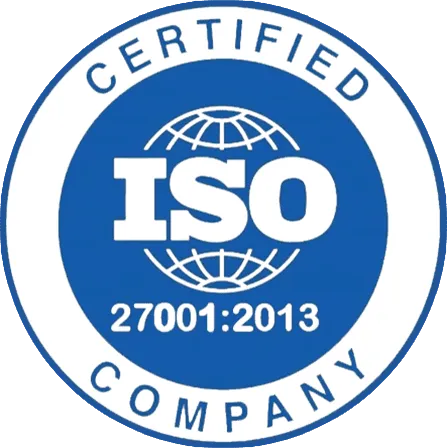The beauty and personal care industry is undergoing a significant shift, with direct-to-consumer (D2C) brands like MamaEarth leading the charge. The global D2C beauty market is thriving, and in India, the D2C brands in the B&P sector are expected to grow at a staggering rate of 30% annually, with the market reaching $4.4 billion by 2025 (Source: RedSeer Consulting Report). This rapid expansion is driven by increased digital penetration, changing consumer preferences for natural and personalized products, and the convenience of shopping online directly from brands.
In this booming market, choosing the right eCommerce platform for powering your direct-to-customer brand is critical for success. While Shopify is a popular choice, several other D2C Shopify alternative platforms offer unique advantages that cater specifically to D2C beauty brands.
Some popular Shopify competitors for D2C B&P products are StoreHippo, Magento, BigCommerce, WooCommerce and Shift4Shop. Before we delve into the pros and cons of each of these let us first understand the non-negotiable features of an ecommerce platform suitable for fast-growing brands in the B&P sector.
Non Negotiable Features Of A Shopify Alternative Platform To Build A Beauty and Personal Care D2C Website
Building a successful Beauty and Personal Care D2C online store requires a Shopify competitor platform with essential features tailored for the industry. From customizable storefronts to seamless mobile experiences, the right platform must support scalability, omnichannel marketing, and effortless management of inventory and orders.
.png)
- Future-Ready Technology: Your chosen D2C website builder should be built on next-gen technology and headless architecture that allows businesses to decouple the frontend and backend for limitless customization and faster site performance. This ensures adaptability to evolving trends and user expectations.
- Quick and Easy Store Setup: The platform should offer plug-and-play solutions with pre-built customizable themes and battle-tested solutions for quick store launch. It should simplify the process to help your beauty brand go live without technical hassles.
- Feature-Rich Solutions: Provide built-in tools, customizable storefronts, product-order-inventory management solutions along with multi vendor and multi-store solutions for a modern D2C brand. It should also ensure your brand has all the tools needed to manage and grow its online presence effectively.
- Flexibility and Scalability: An ideal Shopify alternative for D2C businesses should provide a robust platform that can easily scale with growing business needs, handle high traffic and large volumes of transactions. The idea is to ensure it accommodates the evolving demands of beauty and personal care brands.
- Mobile Commerce Solutions: Mobile is the most lucrative sales channel for brands and hence your website builder should ensure seamless shopping experiences across all devices with responsive and native mobile app support. It should build customer facing brand apps and offer Progressive Web Apps (PWAs) to enhance customer engagement on mobile.
- Easy to Build Omnichannel Solutions: Your preferred D2C Shopify alternative should support omnichannel strategies by integrating sales channels, centralizing inventory management, and enabling omnichannel marketing campaigns. It should enable your beauty brand to deliver consistent customer experiences across all touchpoints.
- Ease of Use For All Parties: The ideal platform for your D2C brand should ensure ease of use with an intuitive admin dashboard, seamless customer experience, and vendor-friendly tools for different delivery or other vendor partners associated with your business. It should cater to all stakeholders with easy-to-use features for smooth operations.
- Support for Various Business Models: The ideal D2C Shopify alternative should come with support for diverse business models like B2B, B2B2C, multivendor marketplace, hyperlocal deliveries etc. so your business can innovate, experiment and diversify to other models in future.
- Comprehensive Marketing Tools: D2C businesses need a SEO friendly platform that comes with built-in marketing tools and can also integrate with other automation and marketing tools for doing strategic marketing.
- Seamless Third-Party Integrations: Integrations is one of the most crucial things to ensure when you are looking for Shopify alternatives for your direct to consumer business. Look for a platform that enables smooth integration with payment gateways, logistics partners, and other essential third-party services along with other tools and services needed for smooth business operations.
- Multilingual and Multi-Currency Support: To grow your brand beyond borders you will need a platform that caters to diverse customer bases by offering built-in support for multiple languages and currencies. Go with a Shopify competitor that allows your brand to expand internationally with ease.
- Comprehensive Analytics and Reporting: Data is modern gold and you should look for a D2C website builder that includes detailed analytics and reports for data-driven decision-making and insights into customer behavior. This will help your brand make informed decisions to optimize their online business.
The best-fit Shopify competitor for direct-to-consumer brands should have all or most of the above features to help your brand create a niche in the ecommerce landscape.
Table of Contents
Top 5 Shopify Alternatives for a D2C Beauty and Personal Care Brand Like Mamaearth
To support the rapid growth of your beauty and personal care brand like Mamaearth, you need a platform that not only gives you a tech solution but also
Here are five Shopify alternatives that can help your beauty and personal care brand scale and thrive in this competitive landscape.
1. StoreHippo: The Best All-in-One D2C Platform
.png)
StoreHippo is an ideal Shopify alternative for D2C beauty and personal care brands, offering advanced features that support rapid growth and scalability. With its mobile-first architecture and progressive web apps (PWAs), StoreHippo ensures a seamless shopping experience on any device—a critical feature in today's mobile-driven world. StoreHippo provides ready-to-use solutions tailored for medium and large D2C enterprise brands, enabling rapid market entry and tools for agile changes to match buyer demands. With StoreHippo's platform, you can effortlessly create multi-vendor marketplaces, multi-store networks, or multilingual D2C websites with support for multi-currency payments.
Pros:
- Fully managed D2C eCommerce platform with automatic updates and upgrades to ensure hassle-free operations.
- Highly flexible framework allowing for effortless customization of both frontend and backend.
- Scalable solution designed to support business expansion and handle high traffic without performance issues.
- Easily launch your beauty and personal care D2C brand’s online store with advanced eCommerce features and capabilities.
- Built-in mobile app builder to create Android and iOS apps without coding, with no extra costs.
- Support for over 100+ languages, allowing you to connect with customers in their native language make it the best ecommerce platform for beauty and personal care D2C brands.
- User-friendly drag-and-drop interface for creating new and unique design themes for your D2C store in India.
- White-label solutions tailored for enterprise D2C brands.
- Comprehensive multi-layer security including free SSL and PCI-DSS compliance.
- Omnichannel capabilities that let you establish multiple customer touchpoints using the same backend logic and APIs.
- SEO-friendly platform with a range of marketing tools, making it one of the top D2C Shopify alternatives for Indian businesses.
- Over 300+ built-in features eliminate the need for external paid apps or plugins.
- 120+ pre-integrations and seamless API connections to preferred solutions.
- 60+ pre-integrated domestic and international payment gateways.
- 30+ logistics partners for seamless nationwide shipping.
Cons:
- Advanced features and deeper customizations are available in higher-tier plans.
- While favored by high-volume stores as a leading D2C website builder, POS integration is limited to third-party solutions and does not include a proprietary POS system.
- Marketing services are not offered, despite demand from many clients.
2. BigCommerce: Powerful Enterprise Features
.png)
BigCommerce has established itself as a strong D2C Shopify alternative, offering a comprehensive suite of tools designed for direct-to-consumer brands. Known for its scalability and flexibility, BigCommerce provides D2C businesses with the ability to create powerful online stores that can grow alongside their needs. Its rich set of built-in features makes it a solid contender for brands looking for an alternative to Shopify, especially those aiming for international expansion and multi-channel selling.
Pros:
- BigCommerce supports growth from small startups to large enterprises, making it a viable D2C Shopify alternative for brands of all sizes.
- Unlike some platforms, BigCommerce does not charge transaction fees, which can help maximize profit margins for D2C brands.
- Seamless integrations with platforms like Amazon, eBay, and social media allow businesses to reach customers across multiple channels from a single backend.
- Built-in SEO features and advanced marketing tools help drive traffic and increase visibility for D2C brands.
- With a host of built-in functionalities, BigCommerce minimizes the need for third-party apps and plugins.
Cons:
- Compared to other D2C website builders like StoreHippo and Magento, BigCommerce’s design flexibility can be somewhat restrictive, especially for highly customized stores.
- Accessing premium functionalities often requires upgrading to higher-tier plans, which can increase costs for growing D2C brands.
- Although feature-rich, the platform may require some time to fully understand and utilize its extensive offerings, particularly for less tech-savvy users.
3. Magento (Adobe Commerce): Unparalleled Customization
.png)
Magento is a highly flexible and customizable Shopify competitor that offers robust solutions for beauty and personal care D2C brands. Known for its open-source architecture, Magento allows businesses to tailor every aspect of their eCommerce experience, making it an excellent option for brands that need a highly personalized approach. As one of the most versatile platforms on the market, Magento gives D2C brands the tools to scale, innovate, and meet the demands of their growing customer base.
Pros:
- Magento’s open-source nature allows beauty and personal care D2C brands to build highly customized storefronts and experiences tailored to their unique needs.
- Magento is built to handle significant growth, making it a great option for rapidly expanding D2C brands looking to scale globally.
- A large developer community and numerous extensions to enhance and add functionality, from advanced marketing tools to unique payment gateways.
- Robust SEO features, helping brands boost visibility and attract organic traffic, which is crucial for D2C success.
- Comprehensive support for multiple stores, languages, and currencies.
Cons:
- Magento requires considerable technical expertise for setup, customization, and maintenance, which can be challenging for smaller beauty and personal care D2C brands without a dedicated development team.
- While Magento offers a free version (Magento Open Source), the cost of hosting, development, and ongoing maintenance can add up quickly, making it a significant investment.
- Due to its highly customizable nature, building a store on Magento can take longer compared to plug-and-play platforms, delaying time-to-market.
4. WooCommerce: The Affordable Solution
.png)
For D2C beauty brands on a budget, WooCommerce offers an affordable Shopify alternative. As a WordPress plugin, WooCommerce integrates seamlessly with existing websites, making it an excellent choice for brands that want to manage both content and eCommerce from a single platform. WooCommerce’s vast array of plugins offers endless customization opportunities, allowing beauty brands to tailor their store to meet their specific needs.
Pros:
- Low-cost setup and extensive flexibility with access to a vast library of plugins to build a customer friendly D2C website.
- Customizable themes allow for a tailored brand experience to match your unique D2C identity.
- Seamless integration with WordPress, enabling smooth content management alongside eCommerce functions.
- Open-source flexibility, offering the ability to easily add new features and functionalities as your D2C brand expands.
Cons:
- Limited scalability for larger D2C operations, potentially leading to performance issues as traffic grows.
- Heavily reliant on plugins, which may lead to security vulnerabilities and slower site speeds.
- Higher maintenance efforts, requiring regular updates and monitoring to ensure smooth functionality and security.
- Customization limitations for businesses looking for advanced eCommerce-specific features compared to other dedicated D2C Shopify alternatives like StoreHippo.
5. Shift4Shop: Built-in Marketing Tools

Shift4Shop is a feature-rich eCommerce platform that provides a comprehensive solution for beauty and personal care D2C brands. With built-in marketing tools, strong SEO features, and no transaction fees, it appeals to brands looking for cost-effective yet powerful solutions to build and grow their online presence. For beauty and personal care brands aiming for smooth scalability and the ability to connect with their audience through personalized experiences, Shift4Shop offers a compelling alternative.
Pros:
- Cost-effective solution with no transaction fees, making it ideal for newcomer beauty and personal care D2C brands.
- Built-in marketing and SEO tools
- Wide range of features out-of-the-box, such as subscription services and recurring billing, which are great for beauty brands offering subscription boxes or replenishment products.
- Mobile-responsive templates ensure a smooth shopping experience on all devices, crucial for the mobile-savvy beauty and personal care audience.
- Easy-to-use platform that allows businesses to set up and manage their stores without deep technical knowledge.
Cons:
- Limited design customization options compared to more flexible platforms like StoreHippo, Magento or WooCommerce, which may restrict the ability to create unique, branded shopping experiences.
- Smaller app marketplace compared to competitors, potentially limiting advanced functionality as the brand grows.
- User interface may feel less intuitive or modern compared to other leading eCommerce platforms, which could affect the ease of use for some brands making it not the best D2C Shopify alternative for established enterprises.
- Fewer developer resources and community support, which may pose challenges when troubleshooting issues or seeking advanced customizations for specific beauty and personal care needs.
Conclusion
The D2C beauty and personal care sector is experiencing unprecedented growth, and choosing the right eCommerce platform can make all the difference in capturing market share. While there are many Shopify alternative platforms that offer unique features to help you build a strong, scalable online presence it is essential to choose one that gives you the winning edge with future ready solutions designed for connecting with your buyers across touchpoints.
For disruptive D2C brands planning to emulate the success of fast-growing brands like Mamaearth, StoreHippo emerges as the best D2C Shopify alternative. Its mobile-first design, decoupled headless architecture, advanced multi-channel capabilities, and extensive scalability features ensure your beauty brand is future-proof and ready to capture both domestic and international markets.
By selecting a platform that aligns with your long-term goals, your D2C beauty brand can thrive in this dynamic and ever-evolving industry.
Ready to give your D2C beauty and personal care brand a superior Shopify alternative? Explore StoreHippo D2C enterprise ecommerce solutions,start your 14-day free trial now.





















Leave A Comment